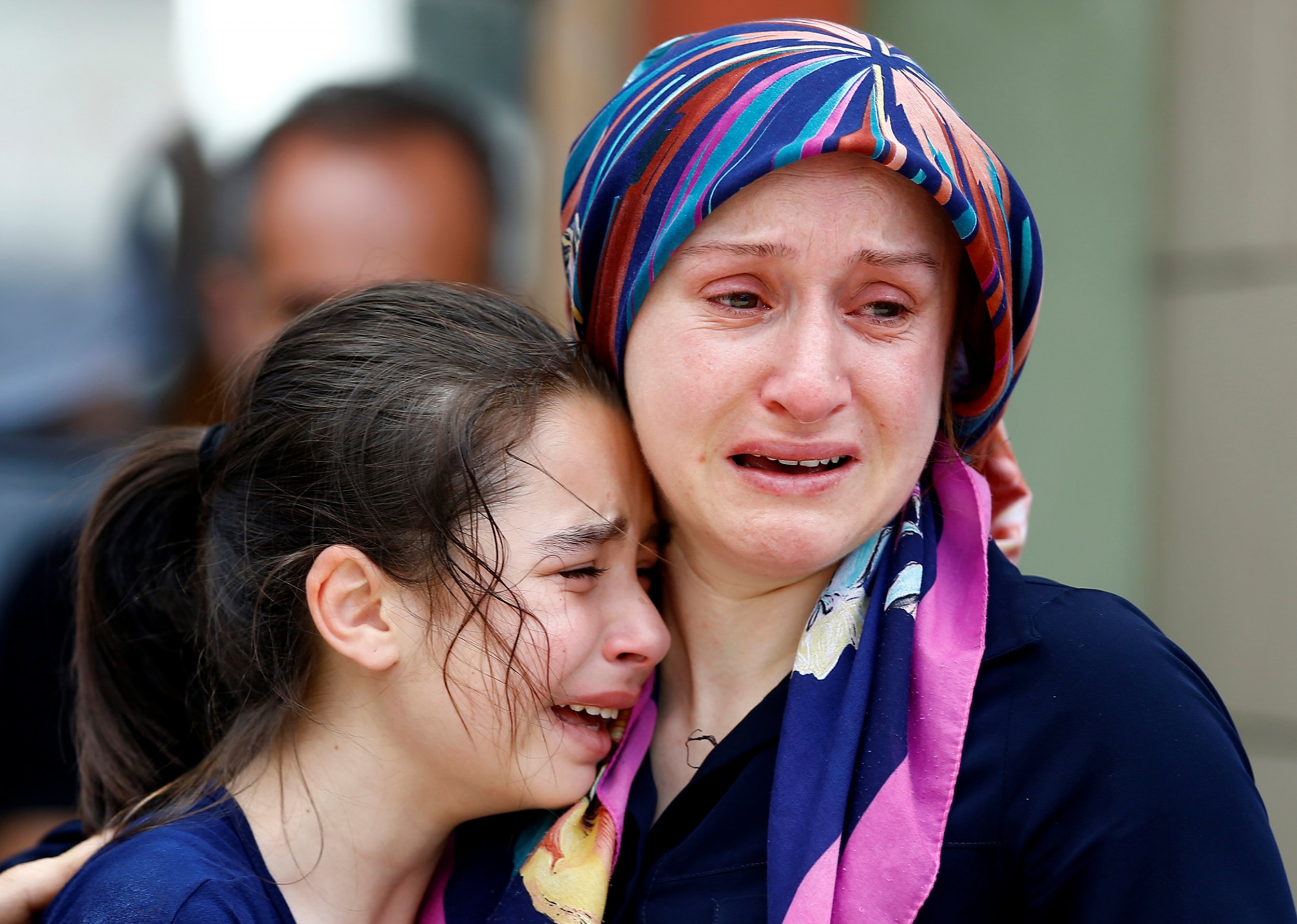
🎙️ Voice is AI-generated. Inconsistencies may occur.
Within hours of the deadly assault on Istanbul's Ataturk international airport, analysts and experts were looking for someone to blame. Most cited lapses in airport security or Turkey's precarious situation given the long-standing conflicts in Iraq and Syria.
The threat faced by Turkey from the Islamic State militant group (ISIS) is real. Major attacks in Turkey attributed to ISIS have killed some 150 people in the past 12 months. Rocket attacks from ISIS-held territory into Turkish border towns are frequent. ISIS did not officially claim responsibility for Tuesday's attack, but the Turkish authorities pointed the finger.
But the considerable ISIS threat to Turkey is about more than proximity to the group's heartland. A year ago, ISIS released the first edition of its Turkish-language propaganda magazine Konstantiniyye, a reference to the old name of Istanbul. When ISIS produces language-specific media, it does so for a reason.
This historic reference to Constantinople tells us much about how ISIS sees Turkey. Not only is Turkey within the geographic reach of its strongholds in Iraq and Syria, but it is both a major European city, often described as part of the "Crusader alliance" against ISIS, and a major Muslim city with a rich religious history.
The release of Konstantiniyye indicates that ISIS views Turkey as not only a target but also as a potential source of recruitment. The latter may carry even more importance to ISIS today, given that the number of foreign fighters traveling to Iraq and Syria has steadily decreased. Further, there have been mounting losses for the group in both countries.
Security experts were quick to point out the possible security lapses or blind spots that may have contributed to the Istanbul attack. But blaming Turkish authorities ignores the very nature of the problem and the work Turkey does to keep its citizens safe.
Comparisons may be unhelpful when discussing acts of violence, but perspective is helpful. The single biggest criticism of Belgian authorities following the Brussels airport and subway bombings was the lack of a cohesive response to intelligence reports and. more worrying. that the individuals involved were part of the same cell as the Paris attackers. Fault was not placed at the door of security measures.
The early criticism leveled against Turkey has centered on the inadequacies of its security setup. These critics have ignored the mounting challenges Ankara faces across the country in having to contend with the threat of political and Islamist extremism.
Turkey has also been combating the growing insurgency waged by armed Kurdish separatist groups such as the Kurdistan Workers' Party and the Kurdistan Freedom Falcons. Over 70 people were killed in major attacks by these groups in the first six months of 2016. The almost daily clashes and increased security activity by Turkish forces in the southeast of the country are already straining their capacity.
The U.K. and U.S. designate these groups as terrorists, but there is little international support, or even sympathy, for Turkey in its attempts to deal with the threat of both Kurdish and Islamist attacks.
Responses to the attacks in Brussels and Istanbul have been markedly different. Scrutiny of Belgian security and intelligence officials came after the world put its arms around the country, at its time of need. The same goes for France in the aftermath of attacks in Paris. Turkey has not been extended the same courtesy.
But the atrocities in Paris and Brussels are no different from Tuesday's attacks in Istanbul. Today, Turkey is mourning its dead. Istanbul, like any other city, is the victim of a poisonous ideology that does not respect states, nations, borders, ethnicities or cultures.
There is little recognition of the immense challenges Turkey faces on a number of fronts, as well as the measures that it is taking to try to bring stability to the country.
The pre-Brexit scaremongering about Europe's borders being flung open to millions of Turks who will descend on the continent when Turkey joins the EU reflects a growing perception that Turkey is a threat, not an ally.
While Britain has voted to withdraw from the EU, Turkey has been strengthening its relationship with regional partners like Israel and Egypt, as well as trying to repair relations with Russia following the downing of a Russian jet last year.
Turkey understands the need for cooperation in helping to strengthen efforts against extremist attacks, but despite being a NATO member, it appears that many in Europe and the West are reluctant to afford Turkey the same opportunity. And yet this is a time for unity in the face of a transnational ideology.
The attacks in Paris and Brussels drew countries and peoples across Europe together in solidarity. Turkey, a regular victim of violence, does not need to be scapegoated, ostracized or criticized in the aftermath of this attack. It needs our support.
Turkey remains an inextricable part of Europe, and as such, it must be afforded the same level of support as other victims of attacks on the continent. It's time for a bit more Ben Türkiye from people who should be Turkey's friends and allies.
Mubaraz Ahmed is an analyst for the Centre on Religion & Geopolitics.